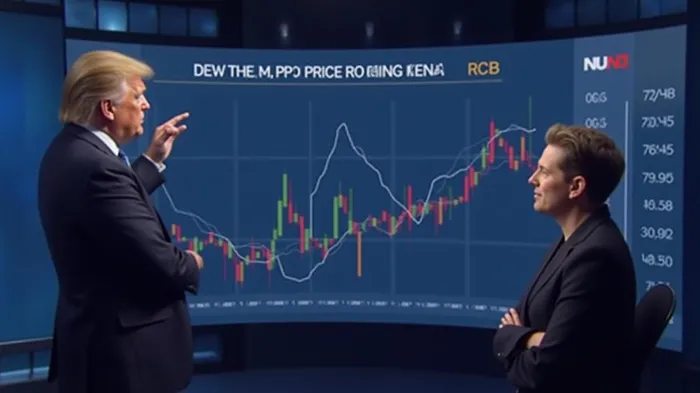Trump Tariffs Expected to Moderately Impact April PCE Price Index
An institutional analysis has indicated that the tariff policy implemented by the Trump administration is expected to have a moderate impact on the US April Personal Consumption Expenditures (PCE) price index. The market anticipates a 0.1% month-on-month increase in the US April Core PCE Price Index, which would be unchanged from March. Economists generally agree that while the impact of President Trump's tariffs on April price data will be modest, the effects of the trade policy are expected to become more apparent as early as next month.
According to the analysis, the overall PCE inflation rate in April is projected to increase by 0.14% on a month-on-month basis, with the core PCE inflation rate also showing moderate growth. This forecast aligns with the broader economic sentiment that tariffs are likely to dampen economic activity and lead to some further softening of the labor market. The impact of tariffs on consumer prices is a critical factor, as nearly 70% of respondents in a recent poll expect everyday goods to rise in price due to the "Trump Tariffs."
The tariff policy has also sparked concerns about its potential to disrupt global trade dynamics. President Trump's threat to impose 50% tariffs on imports from the European Union and 25% tariffs on AppleAAPL-- products if they are not manufactured in the US has added to the uncertainty. These threats have led to a sell-off in risky asset prices and have prompted trading partners to reassess their negotiating strategies.
The analysis further highlights that the tariff policy is expected to have a significant impact on the US economy, with potential repercussions for both domestic and international markets. The US Treasury Secretary has expressed hope that the tariff threats will expedite negotiations with the EU, indicating a strategic move to pressure trading partners into more favorable agreements.
Given the lack of significant deterioration in the current employment market, Federal Reserve officials are inclined to keep interest rates unchanged until the impact of the trade policy adjustments is fully reflected in economic data. This cautious approach underscores the need for careful monitoring of the situation as it develops, with a focus on the potential for further economic adjustments and policy responses.

Quickly understand the history and background of various well-known coins
Latest Articles
Stay ahead of the market.
Get curated U.S. market news, insights and key dates delivered to your inbox.

Comments
No comments yet